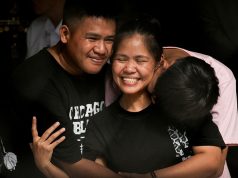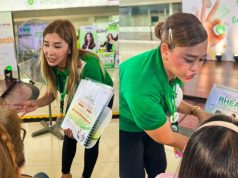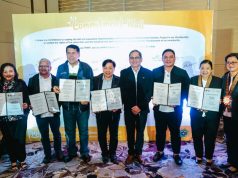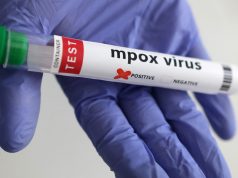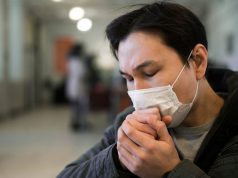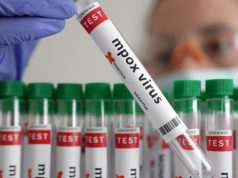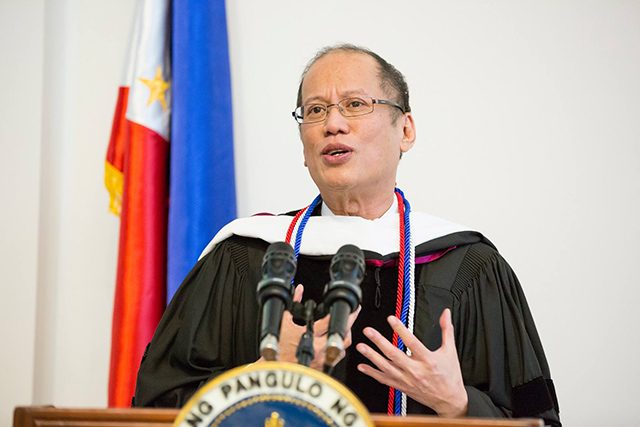
An old interview of late Benigno “Noynoy” Aquino III about the country’s response to the Middle East respiratory syndrome coronavirus (MERS-CoV) epidemic recently resurfaced amid the ongoing struggle to suppress the current health crisis.
Some social media users shared a snippet of the March 2016 interview of Aquino with Michael Genovese, a political science professor where the late president was asked the country’s capability to handle pandemics.
The interview was conducted before the late chief executive received his honorary degree from the Loyola Marymount University.
A clip of it made its way to the discussion website Reddit on Thursday, a week after Aquino passed away.
“Papano kung si PNoy ang presidente during COVID pandemic? Watch how he handled the MERS-COV virus,” a Reddit user wrote.
The Reddit post earned 1,600 upvotes since.
The one-on-one interview was at least 26 minutes long.
Contact tracing efforts
During the interview, Genovese and Aquino were discussing the handling of pandemics. Genovese also cited Ebola outbreak.
The late president was then asked about the healthcare facilities and services in the Philippines.
He responded by citing how his administration handled MERS-COV.
Based on previous reports, the Department of Health recorded the first confirmed MERS-CoV case on April 16, 2014. The infected person was an overseas Filipino worker who tested positive for the virus in the United Arab Emirates (UAE).
Aquino recalled that they were informed of that the citizen tested positive for the virus during Holy Week when most Filipinos were on holiday breaks.
“For instance, the MERS coronavirus, we were told 12 hours after our citizen has landed in Manila that he was tested positive for the virus. This was a period, we’re a heavily Catholic country, this was Holy Week, Wednesday, when the whole country shuts down and that’s when we were informed of the emergency,” the late chief executive said.
“We’ve followed the whole guidelines but we added our own,” he added.
Aquino explained that they conducted immediate contact tracing after learning the confirmed MERS-CoV case.
“There were five of them. Now we’re going to check on just the three people per the immediate vicinity. They never stood up to go to the washroom. They never talked to somebody in a different row, etcetera, because we’re supposed to necessitate direct physical contact,” he said.
“So at the end of the day, I ordered our agencies…the Department of Health, law enforcement, etc. to look for all, I think 418 passengers, at that point in time. We were successful,” he added.
When they found the infected OFW, who is a medical professional, Aquino ordered him to get tested again. The results turned out negative.
The former president then told Genovese that he asked doctors why the test results were different in the UAE and in the country.
“I asked our doctors. ‘Our test method is different from where he came from?’ Said there’s only one test. ‘How can he be positive there and negative here? Our test kits out of date? We just finished the whole inventory so what happened?’ Perhaps the disease has already coursed through him,” Aquino said.
After 21 days since the man landed in Manila, the Philippines remained MERS-CoV-free.
Of the 414 passengers on the same flight as the patient, reports said that 401 of them tested negative for the virus. Four of them left the country and the rest could no longer be contacted.
Detection, contact tracing, isolation
The immediate preventive response by the Aquino administration was also explained in detail in an outbreak investigation report titled “Contact tracing the first Middle East respiratory syndrome case in the Philippines” released in February 2015 by the Western Pacific Surveillance and Response Journal.
In the report, the authors cited early detection, contact tracing and isolation as key tools that prevent MERS-CoV infected persons to transmit the virus to others.
“The strong suspicion of MERS from the physician at Health Facility A led to an early diagnosis and perhaps averted additional cases. Upon laboratory confirmation, the confirmed case was immediately isolated upon at the designated MERS Health Facility B,” the researchers said.
“This action may have reduced the risk of transmission to close contacts and the community. Urgent initiation of contact tracing activities by health-care personnel, quarantine officers and the investigation team may have also contributed,” they added.
Facts about MERS-CoV
The World Health Organization said that it has been reporting MERS-CoV cases since 2012. It said that this virus that led to 858 known deaths and related complications has been identified in dromedaries in several countries in the Middle East, Africa and South Asia.
It added that it is a virus transferred to humans from infected dromedary camels.
“It is a zoonotic virus, meaning it is transmitted between animals and people, and it is contractable through direct or indirect contact with infected animals,” the WHO said.
“The origins of the virus are not fully understood but according to the analysis of different virus genomes it is believed that it may have originated in bats and later transmitted to camels at some point in the distant past,” it added.
The organization also said, “human-to-human transmission is possible, but only a few such transmissions have been found among family members living in the same household.”
Aquino passed away at the age of 61 last June 24. He was laid to rest at the Manila Memorial Park last Saturday.




